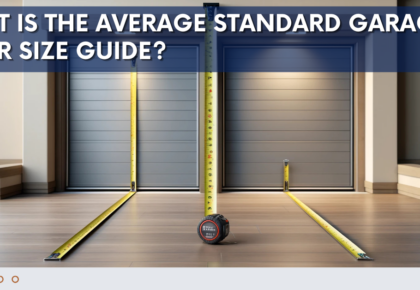Does an Insulated Garage Door Really Make a Difference?
Insulated garage doors are not just a luxury but a necessity in many homes. They provide significant benefits by maintaining a stable temperature inside the garage, which can be crucial during extreme weather conditions, such as hurricanes. Insulated doors help keep the garage warmer in winter and cooler in summer, making the entire home more energy-efficient.
Is it Worth the Extra Money for an Insulated Garage Door?
Investing in an insulated garage door can be a smart decision. While the initial cost might be higher, the long-term benefits, including energy savings and increased comfort, often outweigh the additional expense. Insulated doors also tend to be more durable and offer better noise reduction, adding to their overall value.
What is the Best Type of Garage Door for Insulation?
Steel garage doors with polyurethane or polystyrene insulation are considered the best for insulation. Polyurethane offers a higher R-value, meaning better insulation performance, while polystyrene is more cost-effective but still provides decent insulation.
What is the Ideal R-Value for a Garage Door?
The R-value measures the insulation’s effectiveness. For garage doors, an R-value of 12 to 16 is typically recommended. Higher R-values indicate better insulation properties, helping maintain your garage’s temperature and improving energy efficiency.
How Do I Choose an Insulated Garage Door?
When choosing an insulated garage door, consider factors like the door’s R-value, the type of insulation used, and the door’s material. Look for doors with a higher R-value for better insulation and energy efficiency. Additionally, consider the climate in your area and how much insulation is necessary to keep your garage comfortable year-round.
What is the Most Efficient Type of Garage Door?
The most efficient type of garage door is a steel door with polyurethane insulation. This combination offers excellent thermal resistance, durability, and energy efficiency. These doors can significantly reduce your heating and cooling costs by maintaining a stable temperature in the garage.
How Much Warmer is an Insulated Garage Door?
An insulated garage door can make your garage up to 10-20 degrees warmer in winter compared to a non-insulated door. This temperature difference can be significant, especially if you use your garage for activities beyond just parking your car, such as a workshop or storage space.
What is the Difference Between R12 and R16 Garage Doors?

The primary difference between R12 and R16 garage doors is the level of insulation they provide. An R16 garage door offers better insulation than an R12, meaning it can better maintain the temperature inside your garage. The higher the R-value, the better the insulation and energy efficiency.
Do Insulated Garage Doors Add Value to a Home?
Yes, insulated garage doors can add value to your home. They improve energy efficiency, enhance comfort, and can make your home more appealing to potential buyers. In regions prone to extreme weather, like hurricanes, having a well-insulated garage door can be a significant selling point.
How Long Does an Insulated Garage Door Last?
An insulated garage door can last anywhere from 15 to 30 years, depending on the quality of the door and how well it is maintained. Regular maintenance, such as lubricating moving parts and ensuring the insulation is intact, can extend the lifespan of your garage door.
How Much More is an Insulated Garage Door?
Insulated garage doors typically cost about 15-20% more than non-insulated doors. However, the long-term benefits, including energy savings and increased comfort, often justify the higher initial investment.
Are There Different Levels of Insulated Garage Doors?
Yes, insulated garage doors come in various levels of insulation, primarily determined by the R-value. Higher R-values indicate better insulation. Depending on your needs and climate, you can choose a door with the appropriate R-value to ensure optimal energy efficiency and comfort.
Will Insulating My Garage Door Keep It Cooler in the Summer?
Yes, insulating your garage door can help keep it cooler in the summer. The insulation acts as a barrier, reducing the amount of heat that enters the garage and maintaining a more stable and comfortable temperature.
What Are the Most Energy Efficient Garage Doors?
The most energy-efficient garage doors are those with high R-values, typically made of steel with polyurethane insulation. Brands like Clopay offer highly rated garage doors known for their energy efficiency and durability.
How to Choose an Insulated Garage Door for Winter
When choosing an insulated garage door for winter, focus on doors with high R-values, preferably above R12. Look for doors with robust weather seals and consider the door’s material and insulation type to ensure maximum thermal efficiency.
Cost of Insulated Garage Door vs. Uninsulated
While insulated garage doors cost more upfront, the energy savings and added comfort they provide can offset the higher initial investment. Over time, the reduced heating and cooling costs can make insulated doors a more economical choice.
Garage Door Insulation Kit
If replacing your garage door is not an option, consider a garage door insulation kit. These kits are a cost-effective way to improve your garage door’s insulation and energy efficiency without the need for a full replacement.
In conclusion, investing in an insulated garage door offers numerous benefits, from improved energy efficiency to added comfort and durability. Whether you’re preparing for winter or looking to enhance your home’s value, an insulated garage door is a wise investment that can provide long-term rewards.








